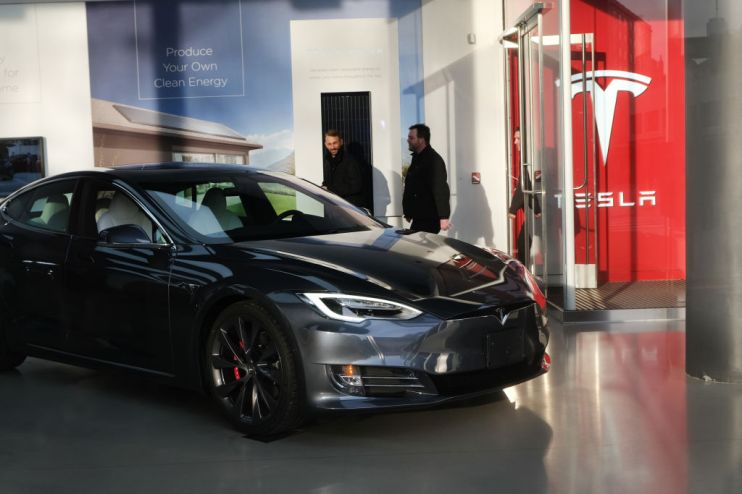Tesla’s short-selling critics do not have to be rewarded to be right

Short-selling, or shorting, is the act of betting against a company’s stock.
If the share price goes down, the short-seller makes money. If the share price goes up, they lose it.
It is the most rhetorical of investments. A short position is a statement of a belief: a minority opinion held against the will of the majority. Short-sellers often find themselves isolated, sometimes even shunned, by the wider investing world.
Sometimes a short position is a moral crusade. In 2012, the hedge fund manager Bill Ackman took a $1bn bet against Herbalife, accusing the company of being a pyramid scheme. Ackman wanted to put Herbalife out of business (and enrich his investors in the process).
When a short-seller triumphs, a David and Goliath story writes itself. The band of misfits who shorted the US housing market in the run-up to the financial crisis became the heroes of Michael Lewis’ The Big Short.
But sometimes short-sellers lose. In 2018, Ackman was forced to cut his losses and abandon the position he had taken against Herbalife. To lose, however, doesn’t mean that a short-seller is necessarily wrong, just that they cannot afford to keep betting against the received wisdom. “Betting on Zero”, a 2017 documentary charting Ackman’s “holy war”, raises unanswered questions about the nature of Herbalife’s business.
Today, the company with the highest value of short positions held against it is Tesla. Or at least, until very recently, it was.
In the last five weeks, it has been reported that the short-sellers who bet against Tesla have lost a total of $8.4bn as the share price has surged. Steve Eisman, one of The Big Short’s protagonists, confirmed that he is no longer shorting Tesla, not because he thinks he was wrong, but because he thinks the share price has “cult-like aspects to it” and is “unmoored” from its true valuation.
There is good reason to be wary of the dramatic recent rise in Tesla’s share price. Tesla is now the world’s second most valuable car company, behind only Toyota. But it sells a fraction of the number of cars — last year, it sold just 3.5 per cent of Toyota’s total.
Sales growth cannot explain it: in the second half of last year, car sales revenue at Tesla fell by 5.6 per cent. And it has never come close to turning an annual profit — last year, it lost $862m.
Those chasing Tesla’s shares upwards would do well to note how closely its share price is tracking that of the South Sea Company, whose collapse was one of the most famous — and ruinous — in history. The believers then were in good company, but it didn’t help them much. Sir Isaac Newton was among their number, thought to have lost the equivalent of £3m in the “South Sea Bubble”.
Of course, you never quite know when a bubble will burst. As mentioned, short-selling is a rhetorical investment, and just as in the greatest rhetorical endeavours, to be right is not always to be rewarded.
Marcus Tullius Cicero famously opposed Mark Antony in a series of speeches now known as the “Philippics”. Just like Tesla’s short-sellers today, he found there was a price to pay for taking a bold position. Mark Antony had Cicero executed: his head and hands were placed on display in the centre of ancient Rome, warning others off the same path.
Cicero’s position, however, has aged well. Posterity has been kind to him, and his opposition to Antony is remembered as one of the noblest in human history.
Tesla’s short-sellers can only hope their reward comes a little sooner than that.
Main image credit: Getty